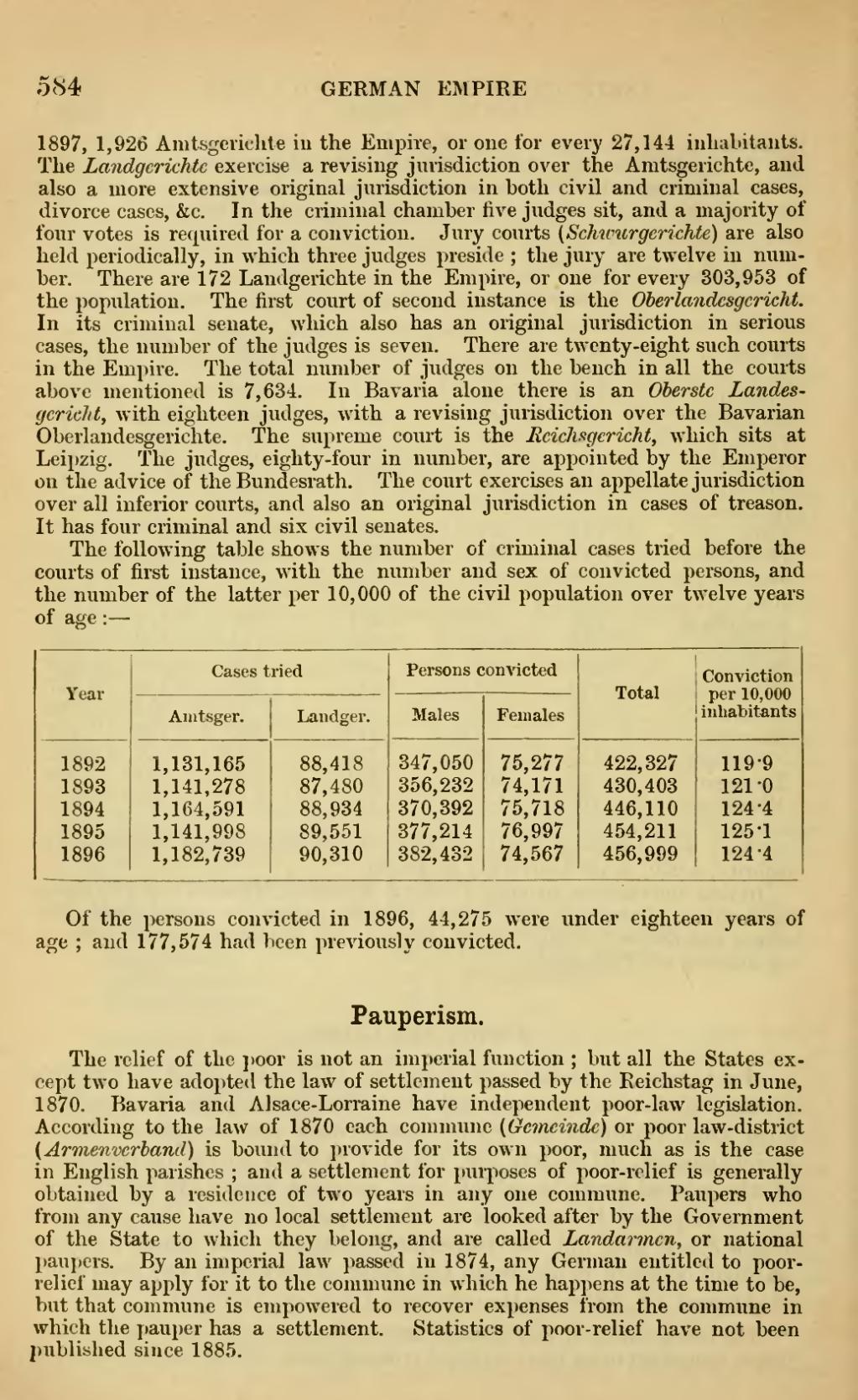584
GERMAN EMPIRE
1897, 1,926 Amtsgerichte in the Empire, or one lor every 27,144 inhaltitants. The Laiidgcrichtc exercise a revising jurisdiction over the Amtsgerichte, and also a more extensive original jurisdiction in both civil and criminal cases, divorce cases, &c. In the criminal chamber five judges sit, and a majority of four votes is required for a conviction. Jury courts {Schwurgerichte) are also held periodically, in which three judges preside ; the jury are twelve in num- ber. There are 172 Landgerichte in the Empire, or one for every 303,953 of the population. The first court of second instance is the Oberlandesgcricht. In its criminal senate, which also has an original jurisdiction in serious cases, the number of the judges is seven. There are twenty-eight such courts in the Empire. The total number of judges on the bench in all the courts above mentioned is 7,634. In Bavaria alone there is an Oberste Landes- gericht, wath eighteen judges, with a revising jurisdiction over the Bavarian Oberlandesgerichte. The supreme court is the licichsgcricht, which sits at Leipzig. The judges, eighty-four in number, are appointed by the Emperor on the advice of the Bundesrath. The court exercises an appellate jurisdiction over all inferior courts, and also an original jurisdiction in cases of treason. It has four criminal and six civil senates.
The following table shows the number of criminal cases tried before the courts of first instance, with the number and sex of convicted persons, and the number of the latter per 10,000 of the civil population over twelve years of age : —
Year
Cases tried
Persons convicted
Total
Conviction
per 10,000
inhabitants
Aiatsger.
Laudger.
Males
Females
1892 1893 1894 1895 1896
1,131,165 1,141,278 1,164,591 1,141,998 1,182,739
88,418 87,480 88,934 89,551 90,310
347,050 356,232 370,392 377,214 382,432
75,277 74,171 75,718 76,997 74,567
422,327 430,403 446,110 454,211 456,999
119-9 121-0 124-4 125-1 124-4
Of the persons convicted in 1896, 44,275 were under eighteen years of age ; and 177,574 had been previously convicted.
Pauperism.
The relief of the jioor is not an imperial function ; but all the States ex- cept two have adopted the law of settlement passed by the Reichstag in June, 1870. Bavaria and Alsace-Lorraine have independent poor-law legislation. According to the law of 1870 each commune (Gemeindc) or poor law-district {Armenverband) is bound to provide for its own poor, much as is the case in English parishes ; and a settlement for purposes of poor-relief is generally obtained by a residence of two years in any one commune. Paupers who from any cause have no local settlement are looked after by the Government of the State to which they belong, and are called Landarmcn, or national })aupers. By an imperial law passed in 1874, any German entitled to poor- relief may apply for it to the commune in which he happens at the time to be, but that commune is empowered to recover expenses from the commune in which the pauper has a settlement. Statistics of poor-relief have not been published since 1885.

